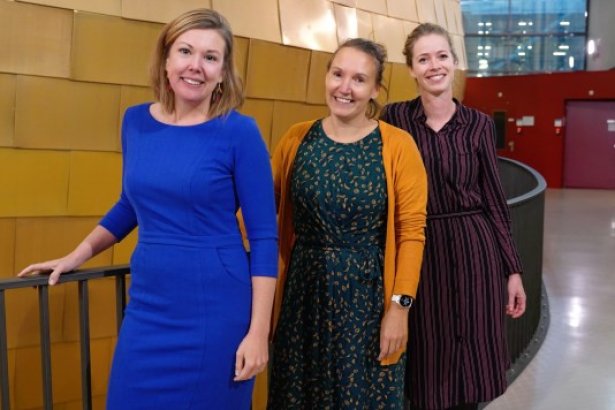


The FRESHAIR4LIFE consortium (an international partnership of research institutes and European university centres) led by Leiden University Medical Centre (LUMC), will receive 3 million euros from the HorizonEurope programme. With this amount, the international consortium aims to reduce exposure to polluted air among young people in five countries that suffer disproportionately from pollution. These countries are: Greece, Kyrgyzstan, Pakistan, Romania and Uganda. Ultimately, researchers hope this will reduce the number of new cases of chronic diseases among adolescents caused by air pollution, such as asthma and COPD.
Many adolescents in low- and middle-income countries are exposed to polluted air on a daily basis. They smoke more and are more likely to 'smoke along' with family members or friends. The air in and around the home is also becoming increasingly polluted. Lead researcher Rianne van der Kleij: "Not enough is being done to improve air quality in these countries. Tobacco and air pollution are therefore the biggest cause of chronic diseases such as COPD and cancer. In addition, the focus in healthcare is often on infectious diseases, so chronic diseases are not recognised or acknowledged"
Adolescents at the wheel
According to the researchers, involving young people is crucial to tackle this problem. In their role as 'prevention ambassadors', they will take the first steps towards sustainable lifestyle change in their communities. Van der Kleij: "Young people often have a large network, potentially a lot of influence and know the problems and challenges in their community well. It also offers an opportunity to link prevention to other social issues that concern young people, such as climate change and equality."
In FRESHAIR4LIFE, young people also collect digital data, through, for example, the innovative PhotoVoice method. Here, they can create TikTok or Instagram content, which shows and discusses pollution in their environment. In this way, they inform and mobilise their community through social media. The young people can also digitally record the level of pollution, by wearing a digital meter to measure air quality. Van der Kleij: "This creates a win-win situation: the young people become aware of air pollution in their community, create support for change on social media and collect data for the research."
Local involvement of professionals: teach-the-teacher
The involvement of local professionals is also important. They are provided with the knowledge and skills through a teach-the-teacher programme. This is needed to put air pollution prevention into practice. Consortium partners NCD Child (Canada), the International Primary Care Respiratory Group (IPCRG, UK) and the European Lung Foundation (ELF, UK) provide the expertise to ensure the active involvement of young people and professionals.
FRESHAIR4LIFE prevention package
Together with the local team, the young people will eventually develop a FRESHAIR4LIFE prevention package. The package consists of two proven effective interventions to make the air cleaner such as 'stop-smoking advice' and use of clean cooking cookers. The implementation and effectiveness of this prevention package will then be studied.
Collaboration
Several international partners are working closely together in FRESHAIR4LIFE. Research institutions from the five intervention countries are the spider in a web: University of Crete (Greece), Makerere University (Uganda), Center for studies in Family Medicine (Romania), The Initative (Pakistan) and Ministery of Health (Kyrgyzstan). They are supported by leading European university centres (Leiden, York, Edinburgh, Maastricht and Groningen). NCD Child, IPCRG and ELF bring expertise in primary care, stakeholder engagement, youth advocacy, dissemination and communication.
In the picture: FRESHAIR4LIFE LUMC team, from left to right: Dr Marise Kasteleyn, Dr Rianne van der Kleij, Dr Anke Versluis. Not in the picture: Prof Niels Chavannes, Dr Matty Crone (photo:LUMC)